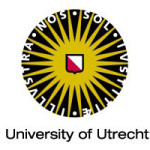Work, Friendships and the Self

Does culture influence the spontaneous associations people make as response to cues in the environment? We have asked individuals with different cultural background to report their spontaneous associations on certain words presented to them in their own language.
In total more than 400 individuals participated. From the Dutch sample we have extracted typical ‘Dutch’ associations related to values at a working context (clarity, effectivity). As expected, in South European cultures (Greece ) the same primes (words) elicited a relational-to-others meaning (e.g.,loyalty, respect for parents).
The goal was however to study how individuals who constantly deal with more cultures e.g., at multicultural organisations, or internationals would behave when moved from one cultural context to another in their interpersonal or intergroup situations. The findings, of strong contemporary societies relevance, are published and pinpoint to the importance of individual dynamics.
Project staff
Katerina Pouliasi & Maykel Verkuyten

Organization: ERCOMER, Universirty of Utrecht
Output:
Our current workshops: We enrich our workshops with our scientific findings and set up a variety of situations so that participants can to test and train their potential multi-cultural competence in various domains
Findings of our research have been published in our scientific publications
and presented in international conferences or discussed in other organisations and universities.
Please share it with anyone you think they may be interested in that!